Find Help
More Items From Ergsy search
-
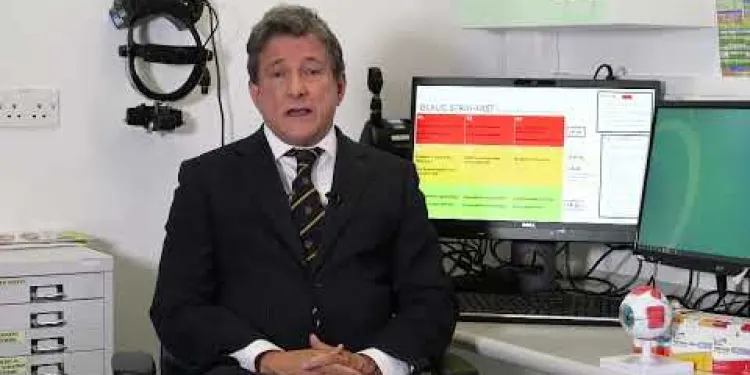
Glaucoma: how does it affect my ability to drive?
Relevance: 100%
-
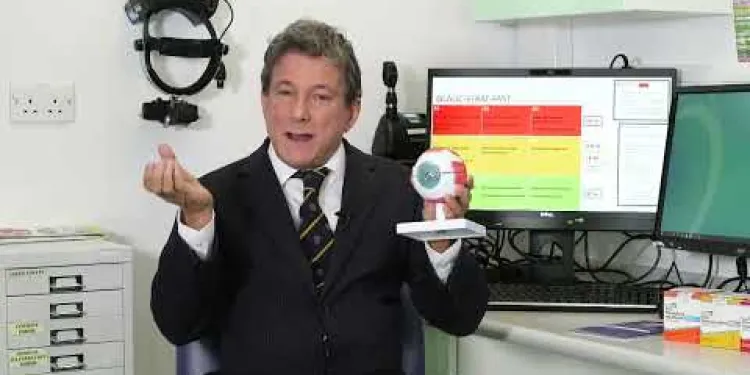
Glaucoma: what is glaucoma?
Relevance: 61%
-
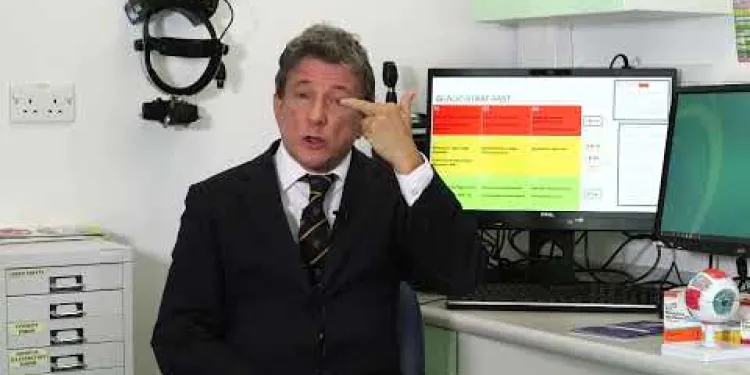
Glaucoma: symptoms in glaucoma
Relevance: 57%
-
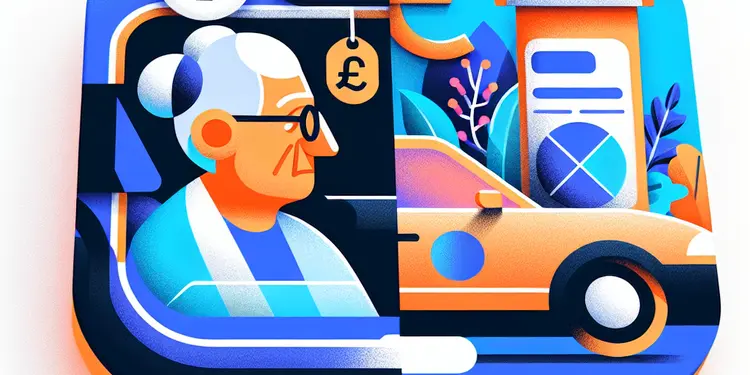
Can medication affect driving ability in people over 70?
Relevance: 56%
-
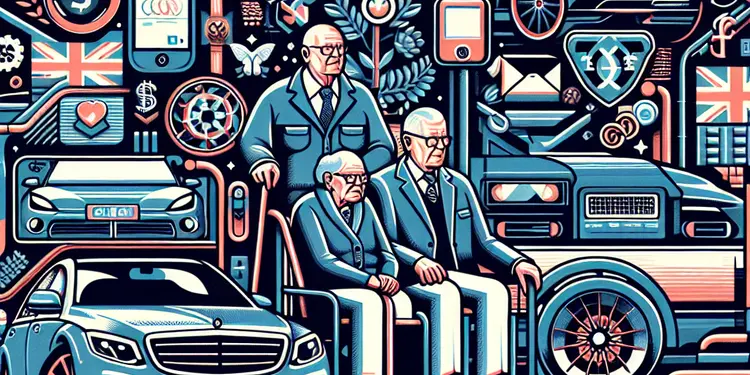
How can family members help assess an elderly person's driving ability?
Relevance: 54%
-
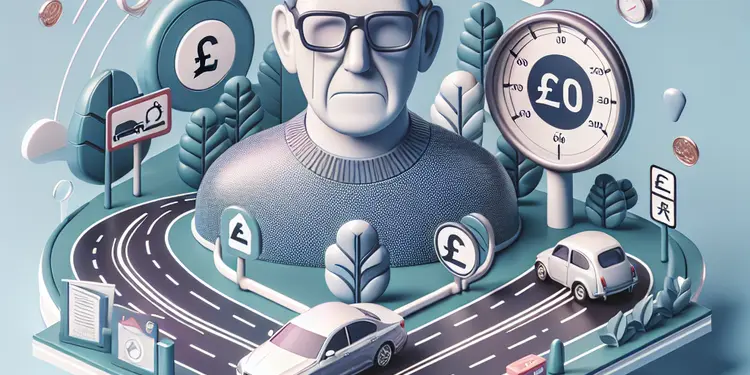
In what ways can vision impairments impact driving for those over 70?
Relevance: 48%
-
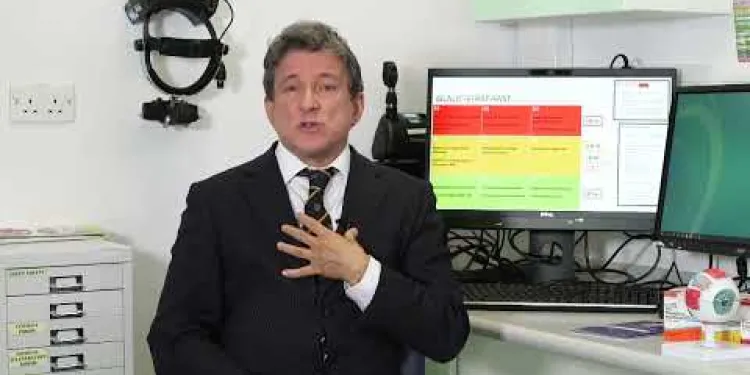
Glaucoma: general side effects of eye drops
Relevance: 48%
-
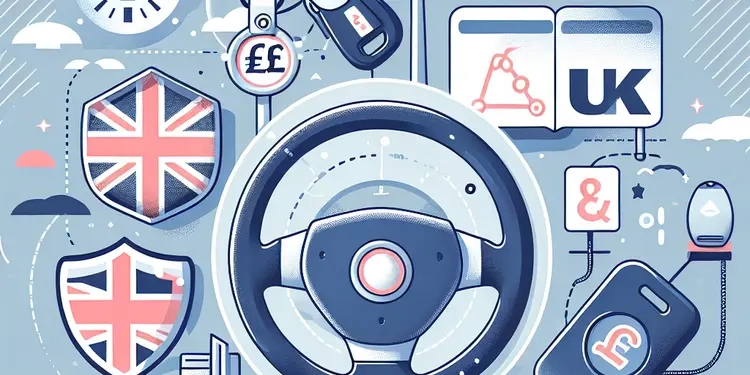
What are the risks of driving after 70?
Relevance: 46%
-

What is the difference between hypotony and glaucoma?
Relevance: 45%
-
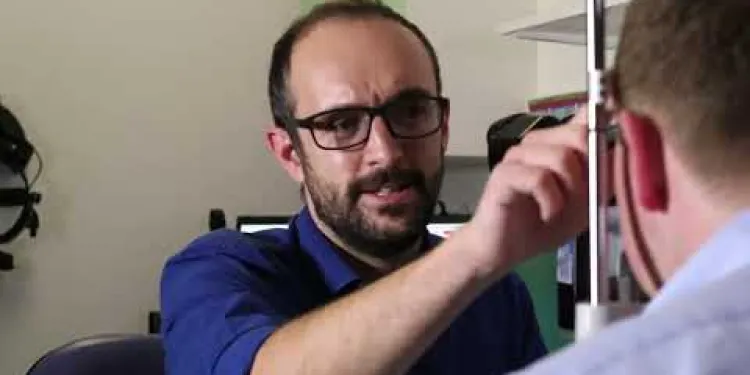
Glaucoma: about the Ophthalmology Team at University Hospitals Birmingham NHS Foundation Trust
Relevance: 44%
-
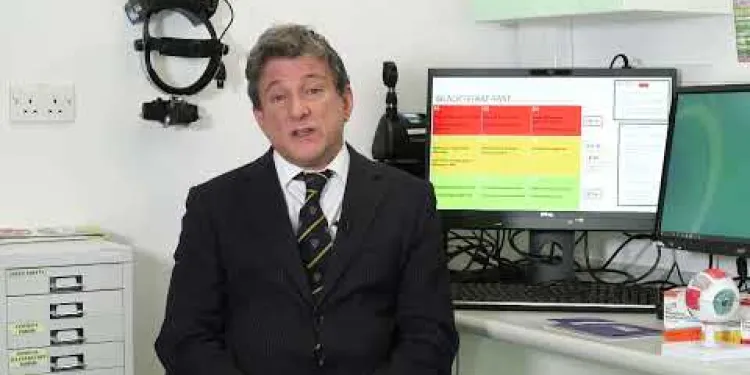
Glaucoma: how often should i take my eye drops?
Relevance: 41%
-
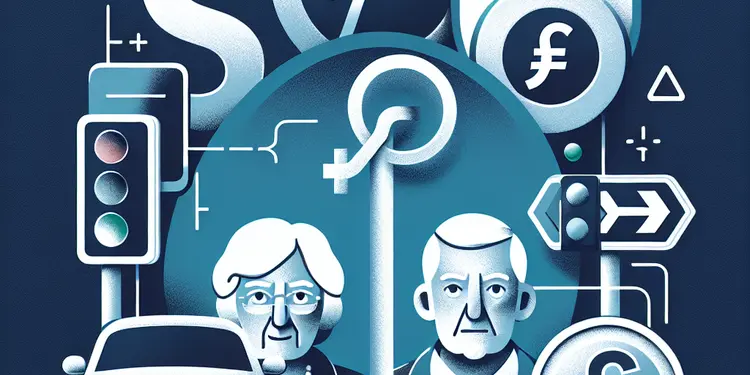
What are the common risks associated with driving after the age of 70?
Relevance: 41%
-
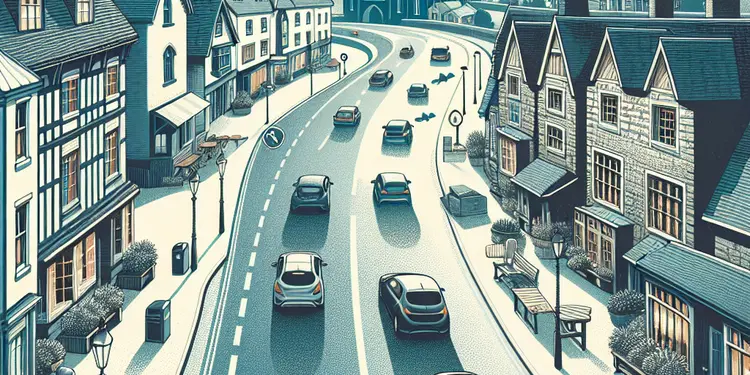
How does driving under the influence relate to dangerous driving?
Relevance: 40%
-
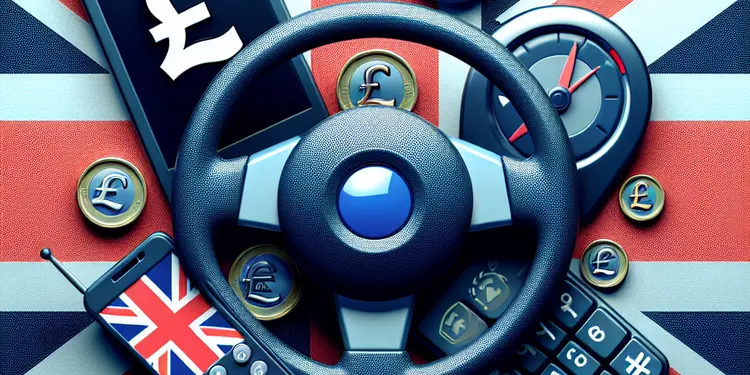
Can distracted driving be classified as dangerous driving?
Relevance: 40%
-

How do cognitive changes in older adults influence driving risk?
Relevance: 37%
-
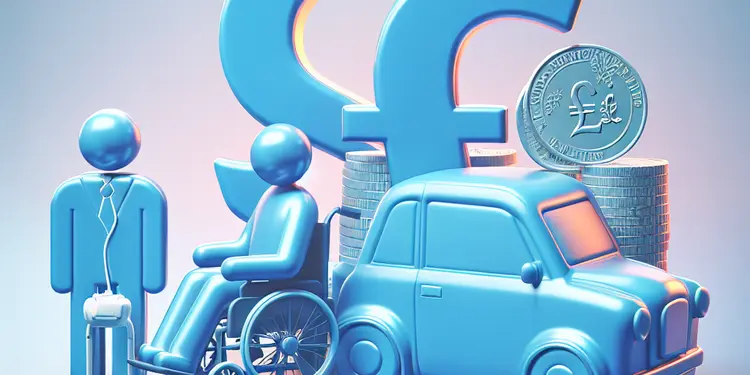
What role do chronic conditions play in driving risks for seniors?
Relevance: 37%
-
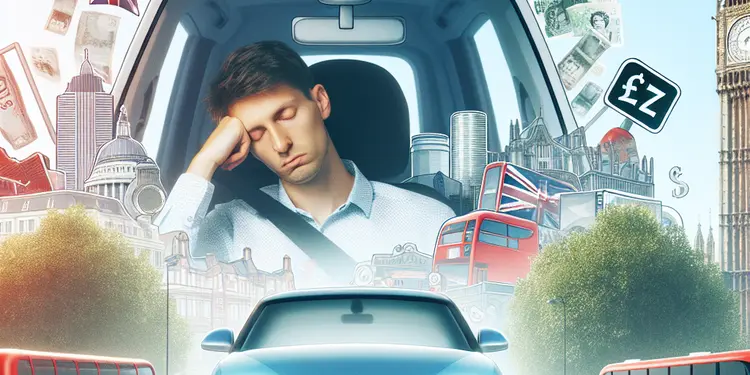
Can fatigue result in dangerous driving?
Relevance: 36%
-
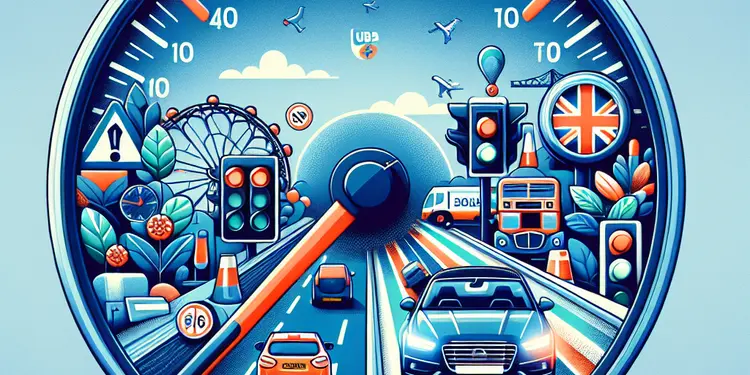
Is driving too slowly considered dangerous driving?
Relevance: 34%
-
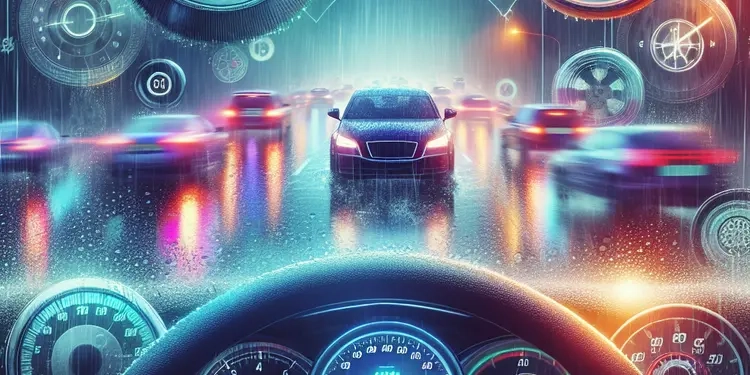
What is dangerous driving?
Relevance: 34%
-
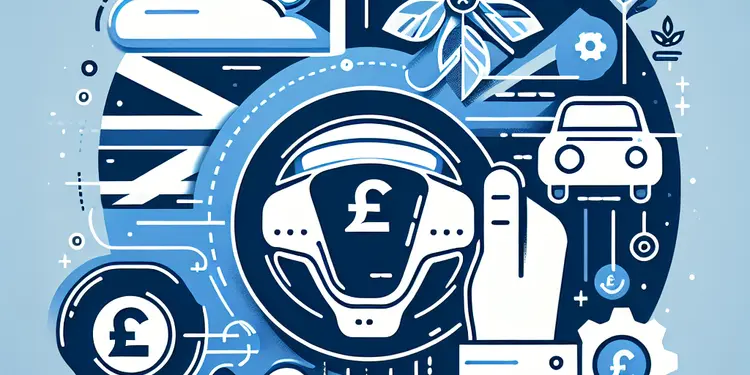
Is it recommended for seniors to take refresher driving courses?
Relevance: 34%
-

What is the difference between careless driving and dangerous driving?
Relevance: 34%
-
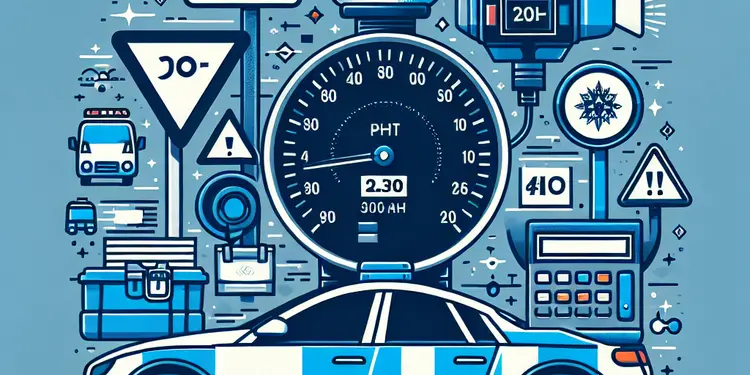
How is dangerous driving detected by police?
Relevance: 34%
-
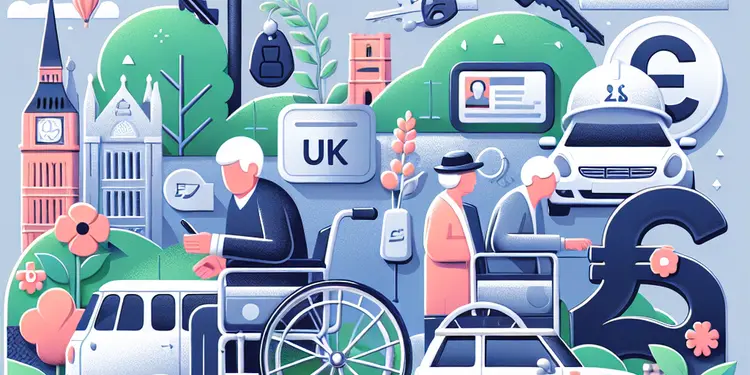
How does the loss of driving privileges affect seniors emotionally?
Relevance: 33%
-
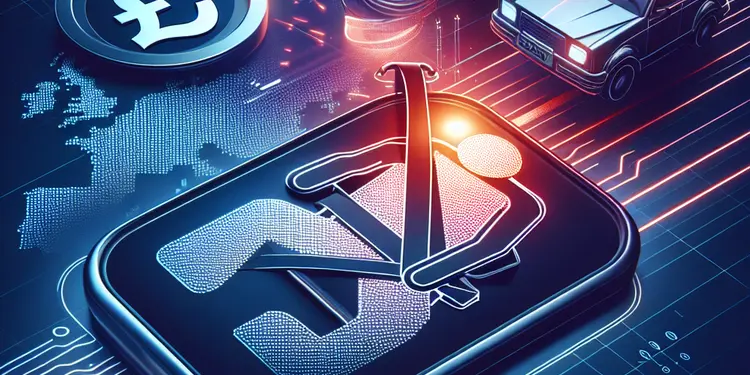
Is driving without a seatbelt considered dangerous driving?
Relevance: 33%
-
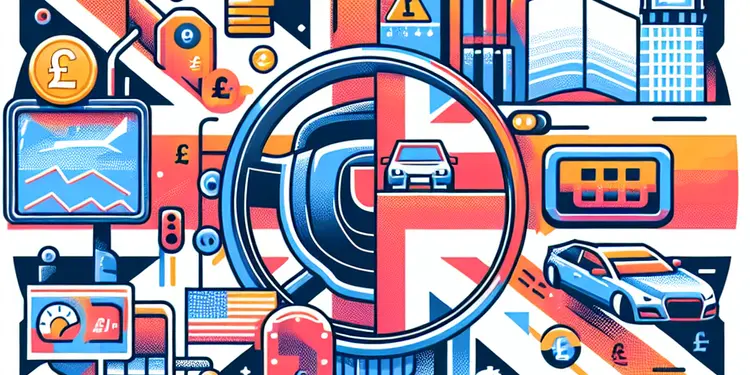
What is considered dangerous driving?
Relevance: 33%
-
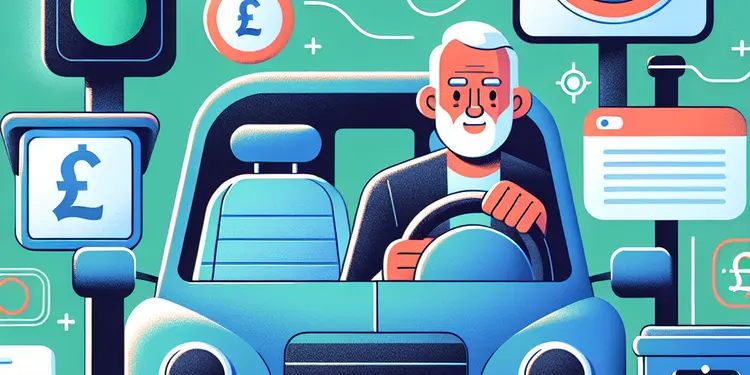
Are there legal requirements regarding driving for seniors over a certain age?
Relevance: 33%
-
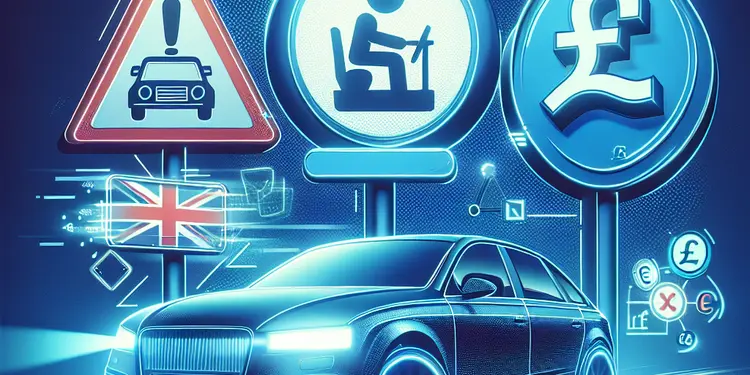
What can I do to avoid dangerous driving?
Relevance: 33%
-
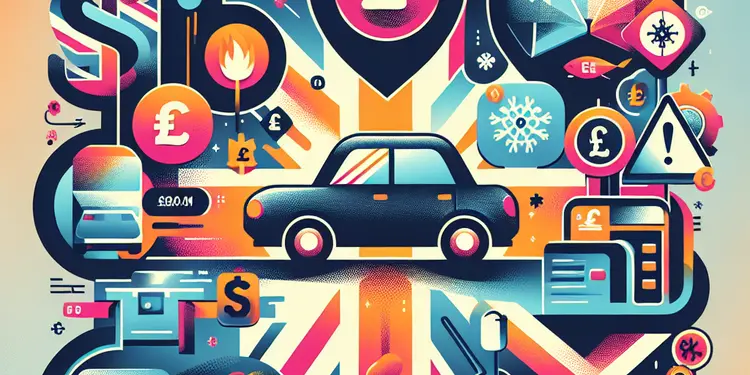
What are the consequences of dangerous driving?
Relevance: 33%
-
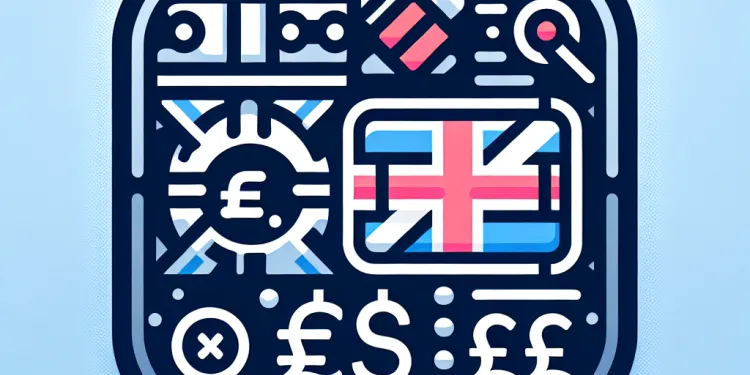
What are the security features of the digital driving license?
Relevance: 33%
-
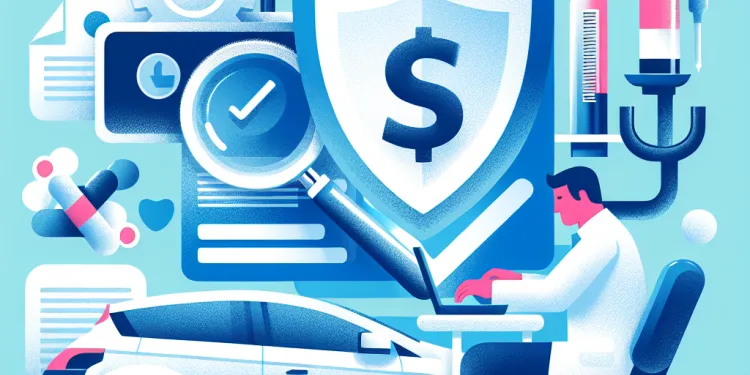
Can I drive after the womb lining test?
Relevance: 32%
-
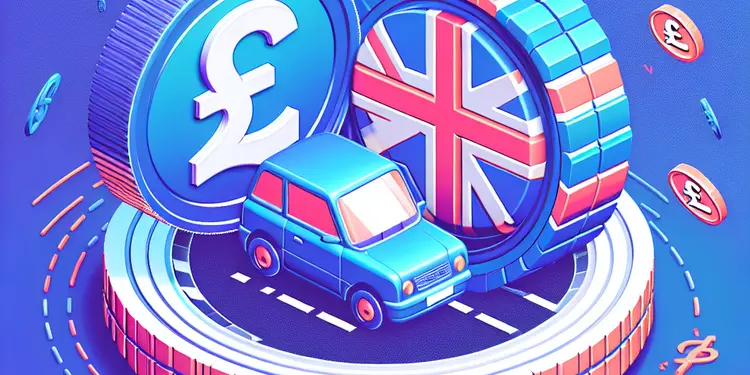
How can older drivers mitigate the risks associated with driving?
Relevance: 32%
-
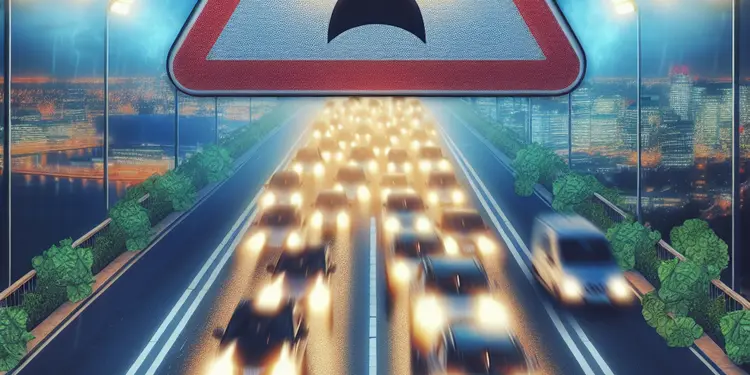
Is road rage a form of dangerous driving?
Relevance: 32%
-
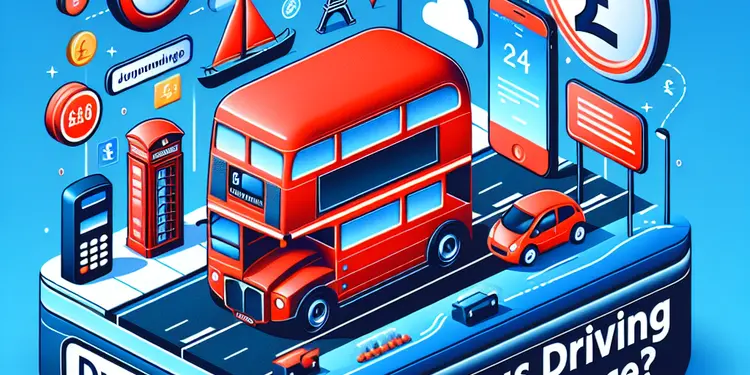
How can dangerous driving affect my insurance?
Relevance: 31%
-
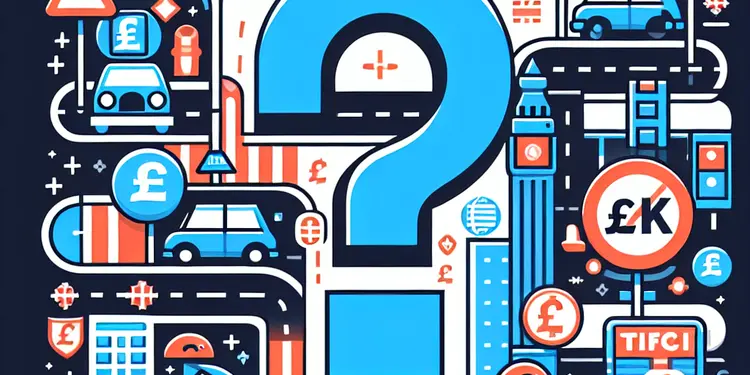
Are there specific laws against dangerous driving?
Relevance: 30%
-

Is it mandatory to have a digital driving license?
Relevance: 30%
-

What are the warning signs that an elderly person should stop driving?
Relevance: 30%
-

How can technology be used to monitor the driving habits of seniors?
Relevance: 29%
-
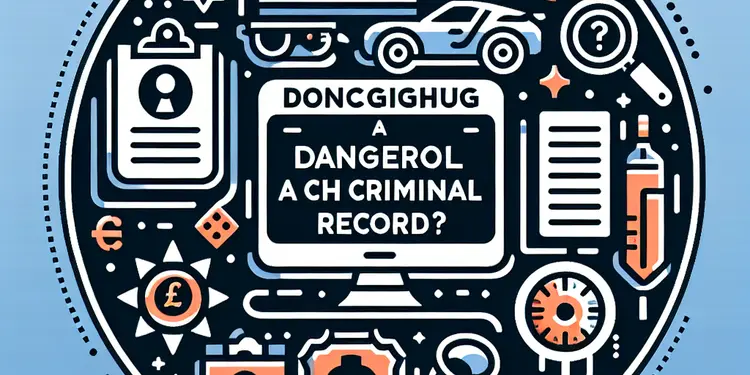
Can dangerous driving lead to a criminal record?
Relevance: 29%
-
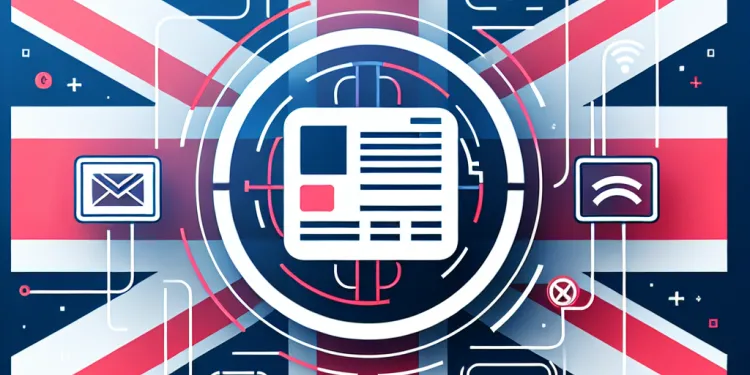
When will the digital driving license be officially available?
Relevance: 29%
-
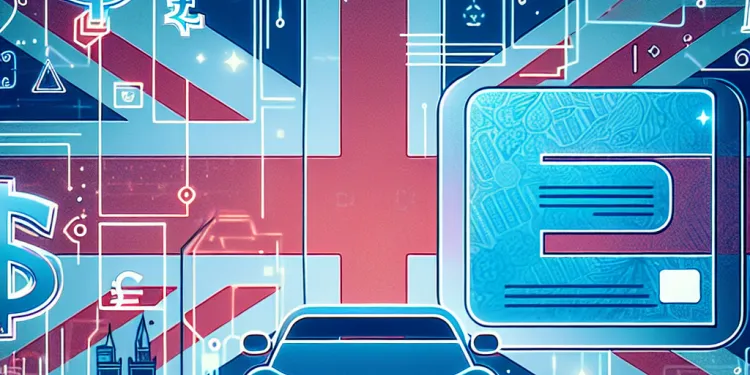
Are there any changes to the driving license categories?
Relevance: 29%
How Glaucoma Affects Your Ability to Drive
Understanding Glaucoma
Glaucoma is an eye condition where the optic nerve, which connects the eye to the brain, becomes damaged. It's usually caused by fluid building up in the front part of the eye, which increases pressure inside the eye. Glaucoma can lead to loss of vision if not treated, and it’s one of the leading causes of blindness.
Impact on Driving
Glaucoma primarily affects peripheral (side) vision first, but it can also affect central vision as the disease progresses. This loss of vision can significantly impair your ability to drive safely. Affected peripheral vision can make it harder to detect hazards from the sides. Reduced contrast sensitivity and glare can further complicate driving, especially in low light or at night.
Legal Requirements in the UK
In the United Kingdom, if you are diagnosed with glaucoma, you must inform the Driver and Vehicle Licensing Agency (DVLA). Failure to do so is a legal offense. The DVLA will require you to pass a visual field test to ensure you meet the minimum eyesight standards for driving. Continuous monitoring and regular eye tests will be essential to maintain your driving license.
Tips for Driving with Glaucoma
- Regular Eye Check-ups: Regular visits to your optometrist will help monitor your vision and adapt to any changes.
- Use Assistive Devices: Anti-glare glasses and wide-angle rear-view mirrors can help improve your vision while driving.
- Limit Night Driving: If nighttime driving becomes difficult, it’s wise to limit or avoid it altogether.
- Stay Informed: Stay updated on any changes in driving laws related to vision requirements to ensure you remain compliant.
Conclusion
While a diagnosis of glaucoma can be concerning, many people with the condition continue to drive safely. It's crucial to stay proactive with your eye health and follow medical advice. Always inform the DVLA of your condition and comply with their requirements to ensure you and others on the road stay safe.
How Glaucoma Affects Your Ability to Drive
Understanding Glaucoma
Glaucoma is an eye disease. It damages the optic nerve in your eye. The optic nerve sends messages from your eye to your brain. Glaucoma happens when fluid builds up in the eye, increasing pressure. This can result in losing vision if not treated. It is a major cause of blindness.
Impact on Driving
Glaucoma mostly affects your side vision first. As it gets worse, it can also affect your central vision. Losing vision can make driving unsafe. You might not see things coming from the side. Bright lights and glare can also make driving hard, especially at night or in low light.
Legal Requirements in the UK
If you have glaucoma in the UK, you must tell the Driver and Vehicle Licensing Agency (DVLA). It is against the law not to inform them. The DVLA will test your eyesight. You need to pass the test to drive legally. Regular eye checks are important to keep your driving license.
Tips for Driving with Glaucoma
- Regular Eye Check-ups: Visit your eye doctor often to check your vision and see any changes.
- Use Assistive Devices: Use anti-glare glasses and wide-angle mirrors in your car to help you see better.
- Limit Night Driving: If you find it hard to drive at night, try to avoid it.
- Stay Informed: Keep up with the rules about vision and driving so you follow the law.
Conclusion
Having glaucoma can be worrying, but many people continue to drive safely with it. It's important to take care of your eyes and follow the doctor's advice. Always tell the DVLA about your condition and follow their rules to keep yourself and others safe on the road.
Frequently Asked Questions
What is glaucoma?
Glaucoma is a condition that damages the optic nerve, often due to high eye pressure, and can lead to vision loss.
Can I still drive if I have glaucoma?
Many people with glaucoma can still drive, especially if the condition is detected early and managed properly. However, it depends on the severity and progression of the disease.
Do I need to notify the DVLA if I have glaucoma?
Yes, if glaucoma affects both of your eyes, you are required by law to notify the DVLA.
What happens if I don't inform the DVLA about my glaucoma?
Failing to inform the DVLA about your glaucoma can result in fines, and your insurance may be invalidated in the event of an accident.
Will I lose my driving licence if I have glaucoma?
Not necessarily. The DVLA will assess your vision to determine if you meet the required standards for driving.
What are the vision requirements for driving with glaucoma?
You must have a visual acuity of at least 6/12 (0.5) on the Snellen scale and a sufficient field of vision as assessed by a specialist or optometrist.
How will my vision be tested for driving eligibility?
Your vision will be tested using a visual field test and standard eye exams conducted by an optometrist or ophthalmologist. The DVLA may also arrange for further testing.
What is a visual field test?
A visual field test measures your peripheral vision, which is crucial for safe driving. It checks for any areas where your vision may be impaired.
Can glaucoma medication affect my ability to drive?
Some glaucoma medications can cause side effects such as blurred vision or drowsiness. It is important to discuss these with your doctor and see how they affect you before driving.
Are there any driving aids for people with glaucoma?
Some adaptive aids like larger rearview mirrors, wide-angle mirrors, and certain types of eyewear can help improve driving safety for those with vision impairments.
What should I do if I feel my vision is getting worse?
If you notice any changes in your vision, consult your optometrist or ophthalmologist immediately. They will advise you on whether it is still safe to drive.
Can driving at night be more challenging for people with glaucoma?
Yes, driving at night can be more difficult due to glare and reduced contrast sensitivity. You may consider limiting night driving if you experience these issues.
How often should I have my eyes tested if I have glaucoma?
It is recommended to have regular eye exams every 6 to 12 months, or as advised by your eye care professional, to monitor the condition and assess your vision for driving.
What lifestyle changes can I make to maintain my ability to drive with glaucoma?
Maintaining a healthy lifestyle, adhering to your treatment plan, wearing appropriate eyewear, and avoiding distractions while driving can help you continue driving safely.
Where can I find more information about driving with glaucoma in the UK?
You can find more information on the DVLA website, consult your eye care professional, or visit organizations such as the Glaucoma UK for guidance and resources.
What is glaucoma?
Glaucoma is an eye sickness. It can hurt your eyes.
It's important to get your eyes checked by a doctor.
Wearing glasses and using eye drops can help.
Glaucoma is a problem that can hurt the nerve in your eye. This nerve helps you see. Glaucoma can make your eye pressure too high, and it can cause you to lose your sight.
Can I still drive if I have glaucoma?
Glaucoma is an eye problem. It can make it hard to see. If you have glaucoma, you need to see your eye doctor. The doctor will check your eyes to see if you can still drive safely. Your doctor might also suggest tools to help you see better, like special glasses. Always talk to your doctor about driving. It's important to stay safe on the road.
Many people with glaucoma can still drive cars. This is true if the doctor finds the glaucoma early. It is also true if they take the right medicine and it does not get worse. Whether you can drive or not depends on how bad your glaucoma is and if it gets worse over time.
Do I need to tell the DVLA if I have glaucoma?
Glaucoma is an eye problem that can make it hard to see. If you have it, you might need to tell the DVLA.
Ask your doctor if you should tell the DVLA. They can help you know what to do.
If you need help, ask someone you trust to help you with forms or letters.
Yes, you must tell the DVLA if glaucoma is in both eyes. It's the law.
What if I don't tell DVLA about my eye problem?
If you have glaucoma, you need to tell the DVLA. Glaucoma affects your eyes and can make it hard to see. The DVLA is the group that helps with driving in the UK.
If you don't tell them, you might get into trouble. Your driving license could be taken away. It is important to keep safe on the roads.
You can also ask someone for help to fill out the forms. Talk to your doctor, they can give you advice.
Remember, telling the DVLA keeps everyone safe.
If you don’t tell the DVLA that you have glaucoma, you might have to pay money as a punishment. Also, if you have a car accident, your car insurance might not work.
Can I keep my driving licence if I have glaucoma?
If you have glaucoma, you might worry about driving.
Here is what you need to know:
- Glaucoma can affect your eyes and how well you see.
- Having glaucoma does not always mean you will lose your driving licence.
- You need to tell the driver licence office about your glaucoma.
- You will have an eye test to check your vision for driving.
- If the test shows you can see well, you can keep driving.
It is important to tell them about your eyes to be safe on the road.
Ask a friend or family member to help if you feel worried or confused.
No, not always. The DVLA will check your eyes to see if you can see well enough to drive safely.
What do you need to see well to drive if you have glaucoma?
You need to see well to drive. Your eyes must see at least as well as 6/12 on the eye chart. A doctor checks if your eyes see enough of the world around you too.
How will my eyes be checked to see if I can drive?
To check your eyes, a doctor who works with eyes will do some tests. They will look at what you can see around you and test your eyes. The DVLA might ask you to do more tests too.
What is a visual field test?
A visual field test checks how well you can see the world around you.
- It helps doctors know if your eyes are healthy.
- It shows if you can see things to the side and in front.
- You may look at lights or buttons on a screen during the test.
Tell a grown-up or doctor if you need help during the test.
Reading tools can help you understand better. Try using tools that read words out loud.
A visual field test looks at how well you can see things around you. This is very important for driving safely. It checks if there are any spots where you can't see well.
Can my eye medicine change how I drive?
Some medicines for glaucoma can make your eyesight blurry. They might also make you feel sleepy. Talk to your doctor about these side effects. Make sure you know how the medicine affects you before you drive a car.
Can people with glaucoma get help to drive?
People with glaucoma can find it hard to see well. There are special tools that can help them drive more safely.
Here are some tools and tips:
- Special glasses to help you see better.
- A car with alerts that tell you about other cars around you.
- Make your car easier to see by using bright lights.
- Practice with a driving teacher who knows about glaucoma.
Some helpful tools can make driving safer for people who have trouble seeing well. These tools include bigger mirrors for looking behind, mirrors that show a wider view, and special glasses.
What to do if you think your eyes are getting worse?
If your eyesight changes, go see your eye doctor right away. They will tell you if it is okay for you to drive.
Is driving at night harder for people with glaucoma?
Driving when it's dark can be tough for some people. If you have glaucoma, it might be even harder.
Glaucoma is an eye problem that makes it hard to see. It can be tough to see clearly, especially in the dark.
Here are some tips that might help:
- Use glasses if you need them.
- Make sure your car lights work well.
- Try not to drive alone at night. Take someone with you if you can.
- Drive slowly and carefully.
If you feel unsure, ask an adult you trust for help or talk to your doctor.
Yes, driving at night can be harder because of bright lights and it’s harder to see things clearly. If this happens to you, it might be a good idea to drive less at night.
How often should I get my eyes checked if I have glaucoma?
Glaucoma is when the eyes are not healthy. You should visit an eye doctor regularly.
Important Advice:
- Go to the eye doctor every 3 to 12 months.
- The eye doctor will tell you when to come back.
- Do not miss your eye appointments.
Helpful Tools:
- Ask a friend or family member to remind you about appointments.
- Use a calendar to write down your appointment dates.
- Set phone reminders so you don't forget your visits.
It is important to get your eyes checked by a doctor. You should do this every 6 to 12 months. This helps to make sure your eyes are healthy and you can see well for driving.
How can I keep driving safely if I have glaucoma?
If you have glaucoma and want to keep driving, you can make some changes to help you stay safe. Here are some tips:
- Visit Your Eye Doctor: Go to your eye doctor for regular check-ups. They can help you keep your eyes healthy.
- Take Your Medicine: Make sure to take your eye drops or any other medicine your doctor gives you. This can help keep your condition stable.
- Use Helpful Tools: Use tools like magnifiers or special glasses if they help you see better.
- Drive in Good Conditions: Try to drive during the day and in good weather when it’s easier to see.
- Ask for Help: If you don’t feel safe driving alone, ask a friend or family member to come with you.
These tips can help you continue to drive safely with glaucoma.
To drive safely, you can do a few simple things:
- Live healthy! Eat good food, sleep well, and exercise.
- Follow your doctor's advice and take your medicine.
- Wear the right glasses or sunglasses.
- Stay focused when you drive. Don't look at your phone or do other things.
These tips can help you stay safe on the road.
Where can I learn more about driving with glaucoma in the UK?
If you have glaucoma and want to drive in the UK, here is how you can get more help and information:
- Talk to your eye doctor: Ask them questions about how glaucoma may affect your driving.
- Visit the DVLA website: Look at the rules for driving with glaucoma. The DVLA is the agency that deals with driving licenses in the UK.
- Use audiobooks and videos: These can help if reading is hard. Try finding books or videos about glaucoma and driving.
- Ask for help: A friend or family member can help you read and understand information about driving with glaucoma.
You can find more information on the DVLA website. You can also talk to your eye doctor or visit groups like Glaucoma UK for help and information.
Useful Links
Have you found an error, or do you have a link or some information you would like to share? Please let us know using the form below.
-->
This website offers general information and is not a substitute for professional advice.
Always seek guidance from qualified professionals.
If you have any medical concerns or need urgent help, contact a healthcare professional or emergency services immediately.
Some of this content was generated with AI assistance. We’ve done our best to keep it accurate, helpful, and human-friendly.
- Ergsy carfully checks the information in the videos we provide here.
- Videos shown by Youtube after a video has completed, have NOT been reviewed by ERGSY.
- To view, click the arrow in centre of video.
- Most of the videos you find here will have subtitles and/or closed captions available.
- You may need to turn these on, and choose your preferred language.
- Go to the video you'd like to watch.
- If closed captions (CC) are available, settings will be visible on the bottom right of the video player.
- To turn on Captions, click settings .
- To turn off Captions, click settings again.
More Items From Ergsy search
-

Glaucoma: how does it affect my ability to drive?
Relevance: 100%
-

Glaucoma: what is glaucoma?
Relevance: 61%
-

Glaucoma: symptoms in glaucoma
Relevance: 57%
-

Can medication affect driving ability in people over 70?
Relevance: 56%
-

How can family members help assess an elderly person's driving ability?
Relevance: 54%
-

In what ways can vision impairments impact driving for those over 70?
Relevance: 48%
-

Glaucoma: general side effects of eye drops
Relevance: 48%
-

What are the risks of driving after 70?
Relevance: 46%
-

What is the difference between hypotony and glaucoma?
Relevance: 45%
-

Glaucoma: about the Ophthalmology Team at University Hospitals Birmingham NHS Foundation Trust
Relevance: 44%
-

Glaucoma: how often should i take my eye drops?
Relevance: 41%
-

What are the common risks associated with driving after the age of 70?
Relevance: 41%
-

How does driving under the influence relate to dangerous driving?
Relevance: 40%
-

Can distracted driving be classified as dangerous driving?
Relevance: 40%
-

How do cognitive changes in older adults influence driving risk?
Relevance: 37%
-

What role do chronic conditions play in driving risks for seniors?
Relevance: 37%
-

Can fatigue result in dangerous driving?
Relevance: 36%
-

Is driving too slowly considered dangerous driving?
Relevance: 34%
-

What is dangerous driving?
Relevance: 34%
-

Is it recommended for seniors to take refresher driving courses?
Relevance: 34%
-

What is the difference between careless driving and dangerous driving?
Relevance: 34%
-

How is dangerous driving detected by police?
Relevance: 34%
-

How does the loss of driving privileges affect seniors emotionally?
Relevance: 33%
-

Is driving without a seatbelt considered dangerous driving?
Relevance: 33%
-

What is considered dangerous driving?
Relevance: 33%
-

Are there legal requirements regarding driving for seniors over a certain age?
Relevance: 33%
-

What can I do to avoid dangerous driving?
Relevance: 33%
-

What are the consequences of dangerous driving?
Relevance: 33%
-

What are the security features of the digital driving license?
Relevance: 33%
-

Can I drive after the womb lining test?
Relevance: 32%
-

How can older drivers mitigate the risks associated with driving?
Relevance: 32%
-

Is road rage a form of dangerous driving?
Relevance: 32%
-

How can dangerous driving affect my insurance?
Relevance: 31%
-

Are there specific laws against dangerous driving?
Relevance: 30%
-

Is it mandatory to have a digital driving license?
Relevance: 30%
-

What are the warning signs that an elderly person should stop driving?
Relevance: 30%
-

How can technology be used to monitor the driving habits of seniors?
Relevance: 29%
-

Can dangerous driving lead to a criminal record?
Relevance: 29%
-

When will the digital driving license be officially available?
Relevance: 29%
-

Are there any changes to the driving license categories?
Relevance: 29%


